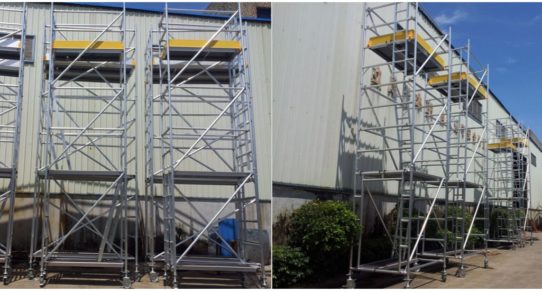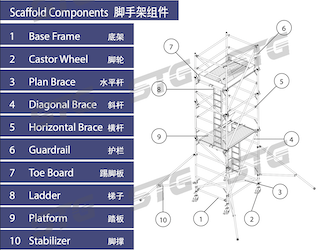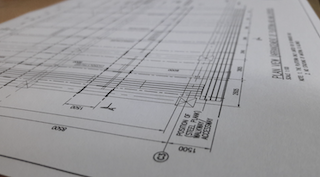In an era where sustainability and environmental consciousness are gaining increasing importance, industries across the board are seeking eco-friendly solutions. Scaffold manufacturing is no exception. As a lightweight and versatile material, aluminium plays a significant role in promoting sustainability in scaffold manufacturing. This article explores the various ways in which aluminium contributes to sustainable practices in the industry, highlighting its environmental benefits, recyclability, and energy efficiency.
Environmental Benefits of Aluminium
Aluminium has several inherent environmental benefits that make it a sustainable choice for scaffold manufacturing. Firstly, aluminium is abundant in the Earth’s crust, ensuring a long-term and sustainable supply. Compared to other metals, the extraction of aluminium requires relatively lower energy consumption, reducing the environmental impact associated with resource extraction.
Recyclability of Aluminium
One of the key sustainable attributes of aluminium is its recyclability. Aluminium can be recycled repeatedly without any loss of quality, making it an infinitely recyclable material. In scaffold manufacturing, this recyclability factor significantly reduces the demand for virgin aluminium, minimizes landfill waste, and conserves energy and resources throughout the product lifecycle.
Reduced Carbon Footprint
The lightweight nature of aluminium is a significant advantage when it comes to reducing the carbon footprint in scaffold manufacturing. As aluminium is lighter than traditional materials like steel, it requires less energy for transportation, resulting in lower fuel consumption and greenhouse gas emissions. The use of aluminium mobile towers can lead to a reduced carbon footprint during both transportation and on-site operations.
Durability and Longevity
Aluminium scaffolds offer durability and longevity, further contributing to sustainability efforts. Aluminium is highly resistant to corrosion, which prolongs the lifespan of scaffold structures and reduces the need for frequent replacements. The long-term usage of aluminium scaffolds minimizes waste generation and the associated environmental impact of scaffold disposal.
Energy Efficiency in Manufacturing
Aluminium scaffold manufacturing processes also benefit from energy efficiency. The production of aluminium requires less energy compared to other metals, such as steel. The lightweight nature of aluminium reduces energy requirements during fabrication, transportation, and assembly processes. The overall energy efficiency of aluminium scaffold manufacturing results in lower greenhouse gas emissions and a smaller ecological footprint.
Environmental Certifications and Standards
Aluminium scaffold manufacturers can pursue environmental certifications and adhere to sustainability standards. Certifications like ISO 14001, which focuses on environmental management systems, and LEED (Leadership in Energy and Environmental Design) accreditation can demonstrate a manufacturer’s commitment to sustainable practices. These certifications ensure that aluminium scaffold manufacturing companies follow strict guidelines and implement sustainable measures throughout their operations.
Collaborative Industry Efforts
The role of aluminium in promoting sustainability in scaffold manufacturing extends beyond individual companies. Collaboration among manufacturers, industry associations, and regulatory bodies can further advance sustainable practices. Sharing best practices, implementing recycling programs, and promoting responsible sourcing of aluminium can collectively drive the industry towards a more sustainable future.
Conclusion
Aluminium scaffold manufacturing plays a crucial role in achieving sustainability objectives within the construction industry. The environmental benefits, recyclability, reduced carbon footprint, durability, and energy efficiency of aluminium contribute to sustainable practices. As the industry focuses on minimising environmental impact and embracing sustainable solutions, aluminium scaffolds offer a reliable option that promotes resource conservation, waste reduction, and energy efficiency. By leveraging the inherent benefits of aluminium, scaffold manufacturers can make significant strides towards a greener and more sustainable future.






